
At Charter Oak, we’re educating the nurse of the future with our online RN/ADN to BSN program! If you have an active RN license and are seeking a trusted online educational partner to earn your Bachelor of Science in Nursing, our program has been created with you in mind. Read More
The program is licensed and accredited by the Connecticut Board of Regents for Higher Education. The RN/ADN to BSN program at Charter Oak State College is pursuing initial accreditation by the Commission on Collegiate Nursing Education (www.ccneaccreditation.org). Applying for accreditation does not guarantee that accreditation will be granted.
Visit the Commission on Collegiate Nursing Education for more information.
Currently Charter Oak may enroll students from all US states except GU, IA, MI, MS, SD, TN, VT, WA, WI, and WY. According to the National Council of State Boards of Nursing (https://www.ncsbn.org/index.htm), the boards of nursing in these states require specific approval of any RN/ADN to BSN program that enrolls RNs from their state. Charter Oak is currently seeking approval in these states; as these approvals are granted this webpage will be updated.
Those applicants or students for whom initial RN licensure has been delayed due to COVID-19-related NCLEX-RN scheduling should contact the Director of the RN/ADN to BSN program, Linda Perfetto at lperfetto@charteroak.edu for direction
This major requires a minimum of 120 credits. All major requirements must be completed with a grade of 'C' or higher. Applicants may transfer in two (2) courses from another RN/ADN to BSN program with grades of ‘C’ or above, from other regionally accredited institutions. The credits must be equivalent to the content and credit amount offered in one of the required courses of the program, subject to approval of the Nursing Director.
- NUR 301: Baccalaureate Nursing Role 3 credits
- NUR 310: HC Policy, Economics, Regulation, & Ethics 3 credits
- NUR 315: Nursing Research & Expanded EBP 4 credits
- NUR 320: Population Health 4 credits
- NUR 400: CQI, Safety, & IP Collaboration 4 credits
- NUR 410: Systems Leadership/Continuum of Care 4 credits
- NUR 495: Baccalaureate Nursing Capstone 4 credits
- Demonstrate a strong foundation in evidence-based nursing practice through purposeful, informed, outcome-oriented thinking and action that reflects a commitment to lifelong learning.
- Utilize and apply knowledge, critical thinking, and clinical decision-making skills to make sound clinical judgments that identify and address individual, population, and organizational challenges.
- Integrate leadership skills of systems thinking, communication and change facilitation to meet patient care and organizational needs across the continuum of care.
- Guided by the acquisition of a liberal arts education, utilize an ethical framework to advocate for patients amid economic, political, social, and demographic forces affecting the delivery of regional, national, and global healthcare.
- Integrate determinants of health and patients’ cultural beliefs and practices into the delivery and management of care to promote health across the lifespan.
- Interact using effective communication skills with patients, families, and interprofessional team members that fosters mutual respect and shared decision making to enhance patient satisfaction and health outcomes.
- Apply evidence-based practice models to identify and integrate scientific evidence to address practice issues and assure quality nursing care outcomes.
- Advocate for and participate in patient safety and quality initiatives as a member of the interprofessional healthcare team.
- Utilize informatics and patient care technology to enhance communication in the provision and management of safe, effective patient care.
- Incorporate professional nursing standards and accountability into practice as a member of the interprofessional healthcare team.
Admission to the RN/ADN to BSN program is selective. Candidates to the program must have:
- A minimum calculated Grade Point Average (GPA) of 2.3, based on the Charter Oak State College Nursing Program of Study (Advising Worksheet).
- Graduated from a nationally accredited (ACEN, CNEA) Associate Degree in Nursing or Diploma Nursing Program. *
- A current, unencumbered RN license from a territory or state of the United States of America. **^
* Applicants who hold a current, unencumbered RN license from a US state or territory, but did not graduate from a nationally accredited (ACEN,CNEA) Associate Degree in Program in Nursing or Diploma Nursing Program, will be subject to the following admissions conditions:
- Credentials from non-U.S. colleges must be evaluated by Educational Credential Evaluators (ECE) or World Education Services (WES). The College must be determined to have the equivalent of US Regional Accreditation by ECE or WES in order for the credits to be transferable.
- Once admitted to the College the student must successfully complete IDS101 and NUR 301 on the first attempt or will be withdrawn from the Nursing Program.
** Applicants who have not yet received their RN license, but meet other admissions requirements, will be permitted to enroll in the college for one semester. Proof of RN licensure must be provided for continued enrollment.
^ Those applicants or students for whom initial RN licensure has been delayed due to COVID-19-related NCLEX-RN scheduling should contact the Director of the RN/ADN to BSN program, Linda Perfetto at lperfetto@charteroak.edu for direction.

Cynthia L. Holle
DNP, MBA, RN
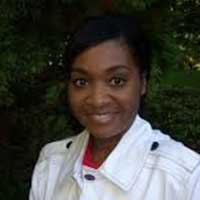
Stephanie G. Knutson
Ed.D, RN

Kathryn P. Jackman-Murphy
Ed.D, MSN, RN, CHSE
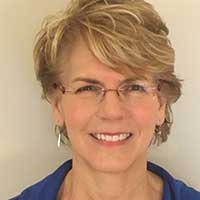
Ellen O. Duell
APRN, CWOCN, ACNS-BC
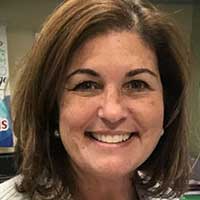
Lisa Rioux
CNML, MSN, BSN, RN
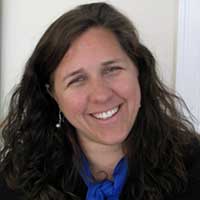
Kimberly A. Clear Sandor
MSN, RN, FNP

Kathleen S. Urban
MSN, RN, CCRN
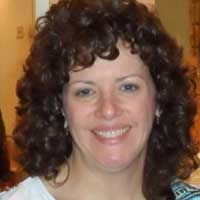
Maribel Rivera Smith
MSN, Ed., DNP, RN
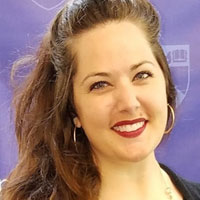
Hannah E. Bergbower
MPH, CNM, WHNP-BC

Joan K. Graham
DNP, RN, CNE, CHSE

Linda M. Perfetto
PhD, MS, RN, CNE, CNOR, FAADN
As our country celebrates heroes of the COVID-19 Pandemic, our nurses have strongly emerged as public health advocates and educators in addition to their ever-important role at the bedside. In addition to caring for those acutely ill from the virus, nurses continue to care on the front line as they attend births, assist in urgent surgeries, staff our emergency departments, and address essential healthcare needs throughout our communities that haven’t gone away. The role of the nurse has expanded as they fill the void of family members unable to be with their loved ones during times of great pain, sadness, and loss.
The college salutes these heroes for all they do every day. We are proud of our RN/ADN to BSN students who have stood strong and resilient as they grow and continue to learn during these unprecedented times. We are thankful for our talented and esteemed faculty who facilitate student learning. We are grateful for the opportunity to work with more and more nurses who continue to enroll at a steady pace.
The Charter Oak State College RN/ADN to BSN program is proud to be undergoing a review for accreditation by the Commission on Collegiate Nursing Education (CCNE). The college continues to be engaged with related procedures following the site visit held in September. Additional updates will be posted as they become available.
Download Our Nursing Program Student Handbook
Additional Earnings
Bachelor’s degree holders make $1 million more on average over their lifetime compared to their peers who have only a high school degree.*
Opportunity
Employees with a bachelor’s degree now make up 57 percent of total wages earned.**
More Jobs
Jobs requiring a Bachelor’s degree or higher accounted for two out of every three that were added in health care from Dec. 2007 - Jan. 2016.**
Why Charter Oak State College?
- 100% online
- Credit for credentials
- Six (6) start dates
- Expert Faculty
